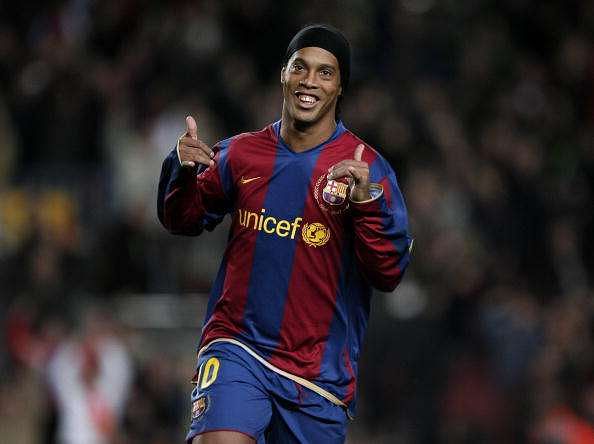
The Eternal Glory: A Deep Dive into UEFA Champions League Historical Facts and Rankings
The UEFA Champions League, often simply referred to as the UCL, is more than just a football tournament; it’s a global phenomenon, a crucible of talent, and the ultimate stage for European club football. Since its inception as the European Champion Clubs’ Cup in 1955, it has evolved from a knockout competition for national champions into a multi-stage spectacle involving the continent’s elite. Its rich tapestry is woven with legendary teams, iconic players, breathtaking moments, and a statistical heritage that defines footballing greatness. This article delves into the historical facts, rankings, and unforgettable narratives that have shaped the UCL into the pinnacle of club football.
From European Cup to Champions League: A Transformative Journey
The tournament was born out of a desire for a pan-European club competition, championed by French sports newspaper L’Équipe and its editor Gabriel Hanot. The first edition of the European Champion Clubs’ Cup kicked off in the 1955-56 season, featuring 16 teams. It was a straightforward knockout format, and right from the start, a dynasty was forged.
The most significant transformation occurred in the 1992-93 season when the competition was rebranded as the UEFA Champions League. This change was not merely cosmetic; it introduced a group stage, allowed multiple teams from stronger leagues to participate, and ushered in an era of unprecedented commercial growth and global reach. The iconic anthem, the star-ball logo, and the increased prize money cemented its status as the most lucrative and prestigious club competition in the world.
The Pantheon of Champions: Club Dominance
When discussing UCL history, one club stands head and shoulders above the rest: Real Madrid. Their dominance is unparalleled, boasting a staggering 14 titles. Their initial run of five consecutive titles from 1956 to 1960, spearheaded by legends like Alfredo Di Stéfano and Ferenc Puskás, set an impossibly high bar. Decades later, they replicated this dominance in the modern era, winning four titles in five years between 2014 and 2018, including an unprecedented three-peat from 2016 to 2018 under Zinedine Zidane, definitively breaking the ‘Champions League curse’ that no team had managed to defend the trophy in its new format.
Following Real Madrid, a group of European giants form the next tier of success:
- AC Milan (7 titles): The Italian powerhouse defined tactical brilliance and defensive solidity in their eras of dominance, particularly in the late 1980s and early 1990s under Arrigo Sacchi and Fabio Capello, and again in the 2000s with Carlo Ancelotti.
- Bayern Munich (6 titles): The German champions have been a consistent force, with distinct periods of success in the 1970s, early 2000s, and a recent treble-winning campaign. Their blend of power, precision, and tactical adaptability makes them a perennial contender.
- Liverpool (6 titles): The English club has a storied history in the competition, particularly famed for their European nights at Anfield and their incredible comebacks, most notably the "Miracle of Istanbul" in 2005.
- Barcelona (5 titles): The Catalan giants rose to prominence with their ‘Total Football’ philosophy under Johan Cruyff in the early 1990s, but truly dominated the modern era with their ‘tiki-taka’ style, spearheaded by Lionel Messi, under Pep Guardiola and later Luis Enrique.
- Ajax (4 titles): The Dutch masters of ‘Total Football’ enjoyed a golden era in the early 1970s with Johan Cruyff and again in the mid-1990s with a young, vibrant squad under Louis van Gaal.
- Manchester United (3 titles): Under Sir Alex Ferguson, Manchester United became a formidable force, winning their first title in 1968, and then adding two more in dramatic fashion in 1999 (completing the treble) and 2008.
Top Clubs by Champions League / European Cup Titles:
| Rank | Club | Titles | Winning Seasons |
|---|---|---|---|
| 1 | Real Madrid | 14 | 1956, 1957, 1958, 1959, 1960, 1966, 1998, 2000, 2002, 2014, 2016, 2017, 2018, 2022 |
| 2 | AC Milan | 7 | 1963, 1969, 1989, 1990, 1994, 2003, 2007 |
| 3 | Bayern Munich | 6 | 1974, 1975, 1976, 2001, 2013, 2020 |
| 4 | Liverpool | 6 | 1977, 1978, 1981, 1984, 2005, 2019 |
| 5 | Barcelona | 5 | 1992, 2006, 2009, 2011, 2015 |
| 6 | Ajax | 4 | 1971, 1972, 1973, 1995 |
| 7 | Manchester United | 3 | 1968, 1999, 2008 |
| 8 | Inter Milan | 3 | 1964, 1965, 2010 |
| 9 | Juventus | 2 | 1985, 1996 |
| 10 | Benfica | 2 | 1961, 1962 |
| 11 | Chelsea | 2 | 2012, 2021 |
| 12 | Nottingham Forest | 2 | 1979, 1980 |
| 13 | FC Porto | 2 | 1987, 2004 |
| 14 | Borussia Dortmund | 1 | 1997 |
| 15 | Celtic | 1 | 1967 |
| 16 | Hamburg | 1 | 1983 |
| 17 | Steaua București | 1 | 1986 |
| 18 | Marseille | 1 | 1993 |
| 19 | Feyenoord | 1 | 1970 |
| 20 | Aston Villa | 1 | 1982 |
| 21 | PSV Eindhoven | 1 | 1988 |
| 22 | Red Star Belgrade | 1 | 1991 |
Individual Brilliance: Players Who Defined Eras
The UCL has been a stage for individual brilliance, where legends are forged and records are shattered. Two names stand out in the modern era: Cristiano Ronaldo and Lionel Messi. Their decade-long rivalry has pushed the boundaries of goalscoring and consistency.
- Most Goals: Cristiano Ronaldo leads with an astonishing 140+ goals, a testament to his longevity, prolificacy, and knack for scoring in crucial moments. Lionel Messi is a close second with 120+ goals, showcasing his unparalleled dribbling, vision, and finishing. These two have redefined what’s possible in front of goal.
- Most Appearances: Iker Casillas, Cristiano Ronaldo, Lionel Messi, Karim Benzema, and Xavi Hernández are among the players with the most appearances, demonstrating incredible longevity at the highest level.
- Most Titles Won (Players): Paco Gento (Real Madrid) holds the record with 6 European Cup titles from the initial dominant era. In the Champions League era, Cristiano Ronaldo (5 titles), Karim Benzema (5), Dani Carvajal (5), Luka Modric (5), Toni Kroos (5) and Gareth Bale (5) are among the most decorated players.
Beyond the numbers, players like Paolo Maldini, Alessandro Del Piero, Xavi, Andrés Iniesta, Zinedine Zidane, and Ronaldinho have left indelible marks with their artistry, leadership, and defining performances.
Unforgettable Moments and Iconic Matches
The UCL’s history is punctuated by moments of pure drama, incredible comebacks, and stunning upsets:
- The Miracle of Istanbul (2005): Liverpool, trailing AC Milan 3-0 at halftime in the final, produced an astonishing second-half comeback to draw 3-3 and win on penalties. A testament to never giving up.
- Manchester United’s Treble (1999): Trailing Bayern Munich 1-0 in the final with minutes to spare, United scored two injury-time goals through Teddy Sheringham and Ole Gunnar Solskjær to secure a historic treble.
- Barcelona’s Dominance (2009, 2011, 2015): The Pep Guardiola era Barcelona redefined football with their ‘tiki-taka’ style, delivering mesmerizing performances that culminated in multiple titles, often against formidable opponents like Manchester United.
- Real Madrid’s "La Decima" and Three-Peat (2014, 2016-2018): After a 12-year wait, Real Madrid finally clinched their 10th title in a dramatic extra-time victory over Atlético Madrid. This set the stage for their unprecedented three consecutive titles, a feat that solidified their status as modern-day legends.
- Ajax’s Youngsters (1995): A youthful Ajax side, featuring future stars like Clarence Seedorf, Edgar Davids, and Patrick Kluivert, defied expectations to win the trophy, showcasing the power of youth and fluid football.
- Porto’s Unlikely Triumph (2004): Led by a young José Mourinho, FC Porto shocked Europe by winning the competition against all odds, a masterclass in tactical discipline and underdog spirit.
These moments, and countless others, are etched into the memories of football fans worldwide, contributing to the UCL’s legendary status.
Tactical Shifts and National Dominance
The UCL has also been a mirror reflecting the tactical evolution of football. From the defensive solidity of Italian teams in the 1960s to the ‘Total Football’ of Ajax and the Dutch national team in the 1970s, the physical dominance of English sides in the late 70s and early 80s, the ‘Dream Team’ of Cruyff’s Barcelona, the ‘tiki-taka’ revolution, and more recently, the high-pressing, high-intensity football championed by German coaches like Jürgen Klopp and Thomas Tuchel. Each era has brought new ideas and philosophies that have influenced the global game.
In terms of national dominance, Spain leads the way with the most titles (19), largely thanks to Real Madrid and Barcelona’s successes. England is second (15 titles), followed closely by Italy (12 titles) and Germany (8 titles). These four nations have consistently produced the strongest teams and attracted the best talent, making their leagues the most competitive.
Records and Peculiarities
Beyond the major rankings, the UCL holds numerous other fascinating records:
- Most Goals in a Single Season: Cristiano Ronaldo (17 goals in 2013-14).
- Fastest Goal: Roy Makaay (Bayern Munich) in 10.12 seconds against Real Madrid (2007).
- Most Goals in a Single Match: Lionel Messi (5 goals vs. Bayer Leverkusen in 2012) and Luiz Adriano (5 goals vs. BATE Borisov in 2014) share this record. Erling Haaland recently joined this club with 5 goals vs RB Leipzig in 2023.
- Oldest Player: Marco Ballotta (Lazio) at 43 years and 252 days.
- Youngest Goalscorer: Ansu Fati (Barcelona) at 17 years and 40 days.
- Teams with Most Final Appearances Without a Win: Atlético Madrid (3 times), Reims (2 times), Valencia (2 times).
- Only Club to Win Three Consecutive Titles in the UCL era: Real Madrid (2016, 2017, 2018).
The Enduring Legacy
The UEFA Champions League continues to be the ultimate benchmark for club football. It is a competition that transcends borders, unites fans, and consistently delivers unforgettable drama. Its history is a testament to the pursuit of excellence, the power of teamwork, and the magic of individual genius. As new talents emerge and tactical innovations unfold, the UCL will undoubtedly continue to write new chapters in its glorious history, cementing its status as the world’s premier club football tournament for generations to come. The star-ball shines brightly, promising more thrills, more records, and more legends in the making.



